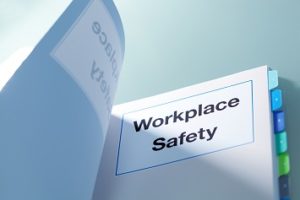Workers who have been through the Occupational Safety and Health Administration’s (OSHA) 10-hour and 30-hour Outreach Training courses get course completion cards—but the courses don’t fulfill the training requirements of any specific OSHA standard. Does that mean you shouldn’t bother with it?
Depending on what state you’re in and what kind of work you do, your workers may be required by state law to complete an OSHA 10- or 30-hour course. For other employers, the course may not be required, but that doesn’t mean it’s without value. Here’s a look at what OSHA Outreach Training can do for your workforce.
Voluntary or Mandatory?
OSHA does not require anyone to complete the OSHA 10-hour or 30-hour Outreach Training courses. However, some states and even municipalities have made the classes mandatory for certain workers, especially in the construction industry.
- Connecticut requires construction workers on some public building projects to have OSHA 10-hour course completion cards issued within the past 5 years.
- Massachusetts requires all workers who will do public sector contract work to complete an OSHA 10-hour course before beginning work.
- Missouri requires employees working on state or municipal public works projects to complete an OSHA 10-hour course within 60 days of beginning work on the project.
- Nevada requires all construction workers and certain workers in the entertainment industry to complete an OSHA 10-hour course at least every 5 years. Construction and entertainment industry supervisors must complete the OSHA 30-hour course at least every 5 years.
- New Hampshire requires workers on larger public sector contracts (over $100,000) to complete an OSHA 10-hour course before beginning work.
- New York requires all workers on public projects with contracts in excess of $250,000 to have completed an OSHA 10-hour course in the past 5 years.
- Rhode Island requires all workers on larger state and municipal construction projects (over $100,000) to have completed an OSHA 10-hour course.
- West Virginia requires workers on public projects in excess of $50,000 to complete the OSHA 10-hour course, except workers employed less than 21 consecutive days are not required to complete the course.
- Municipalities, such as New York City and Philadelphia, have implemented laws that require construction workers to complete the OSHA 10- and 30-hour courses.
Benefits of Training
Whether you are required to or not, giving your workers a chance to earn their 10-hour or 30-hour cards has benefits for you and for them:
- It ensures that the trainer is OSHA-authorized and that the curriculum covers topics that virtually all workers will need for a basic understanding of common workplace hazards and safe practices. Trainers whose credentials or methods are questionable are tracked by OSHA.
- Trainers are permitted to tailor the training to their audience, so you can commission a course that covers the basics of your industry.
- Trainers are encouraged to use participatory, hands-on methods.
- It can help you build a case that you have made a good-faith effort to improve safety in your workplace in the event of an OSHA inspection.
- It can help you locate Spanish-speaking trainers—OSHA maintains a list here.
- It gives workers a strong foundation on which to build their safety knowledge.
- It can help to establish the credibility of an employer’s safety efforts with its workers, contributing to the development of a strong safety culture.
- There is also the option to take the courses online through OSHA-authorized online providers, which can save the time and cost of scheduling and attending classroom courses.

